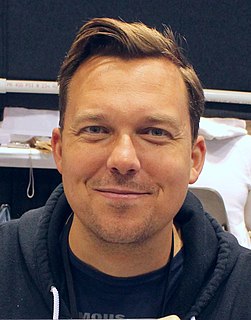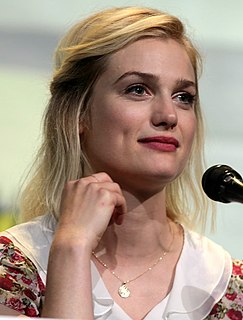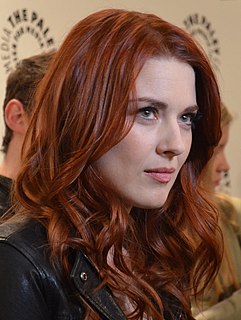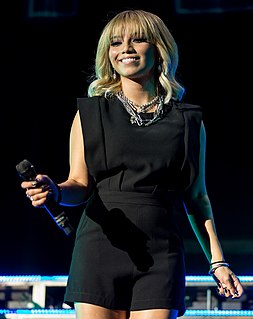A Quote by Mohsin Hamid
I think I've always been drawn to the second person. When I was growing up and playing with my friends, the usual way we interacted with imaginary worlds was as characters: a bench was 'your' boat, leaves on a lawn were the fins of sharks out to get 'you.'
Related Quotes
For any artistic person who creates imaginary people, the art is like inhabiting the life and mind of a seven-year-old child with imaginary friends and imaginary events and imaginary grace and imaginary tragedy. Within that alternate universe, the characters do have quite a bit of free will. I know it's happening in my mind and my mind alone, but they seem to have their own ability to shape their destinies. So I'm not shooting for anything. If the characters are vulnerable it's simply because they're very human.
I'm drawn to real-life characters. A lot of the characters I play, I've had in me since second grade. I've been dragging them around my entire life, and then sometimes I marry them with different people. But seldom have I really come up with a new character. In my head it's like, "I'll pull that person out that I've been doing since sixth grade and see where they're at right now.".
Like many kids, I used to pretend all sorts of things. I would climb into a tree and imagine that I was on an island, that the grass below we was an ocean, that the leaves were the fins of sharks. Perhaps unlike many people, I never really stopped. I still have a childlike predisposition to fantasise and share my fantasies.
When you get busy, the priorities change. In your twenties, you hang out with who you were in school with. Then you grow up and you hang out with the people you're playing ball with, things you like doing with. When you get married, it changes a bit and you lose some friends, or you gain other friends. You gain couple-y friends. It changes again when you have children, and then when your children are the focus of your life.
I do not believe that all books will or should migrate onto screens: as Douglas Adams once pointed out to me, more than 20 years before the Kindle turned up, a physical book is like a shark. Sharks are old: there were sharks in the ocean before the dinosaurs. And the reason there are still sharks around is that sharks are better at being sharks than anything else is.
I do not invent characters. There they are. That's who they are. That's their nature. They talk and they behave the way they want to behave. I don't have a character behaving one way, then a point comes in the play where the person has to either stay or leave. If I had it plotted that the person leaves, then the person leaves. If that's what the person wants to do. I let the person do what the person wants or has to do at the time of the event.
The ones I love most are the people who the flaws show. I like doing characters that we see the total person. If people get afraid to show the flaws because they think, "Oh, then nobody will like them," then you end up with a lot of products, and everybody wants to be frigging heroic all the time - not what people are trapped in every day, like your skirt being in your panties after you walk out of the bathroom. Being human. Sometimes when people are drawn to your work, they're drawn because they recognize themselves or their loved ones or their neighbor in it.
I think the success of every novel - if it's a novel of action - depends on the high spots. The thing to do is to say to yourself, 'Which are my big scenes?' and then get every drop of juice out of them. The principle I always go on in writing a novel is to think of the characters in terms of actors in a play. I say to myself, if a big name were playing this part, and if he found that after a strong first act he had practically nothing to do in the second act, he would walk out. Now, then, can I twist the story so as to give him plenty to do all the way through?
The great thing about acting is, because you're constantly playing other characters and exploring yourself because you have to find those other characters in yourself, you sort of broaden as a person over your life because you've been other people. So you can empathize with many different sorts of people. It's great in that way and I hope, therefore, as you get older as an actor, you not only get more interesting because you lived more, but you get a bit wiser as a person.






































